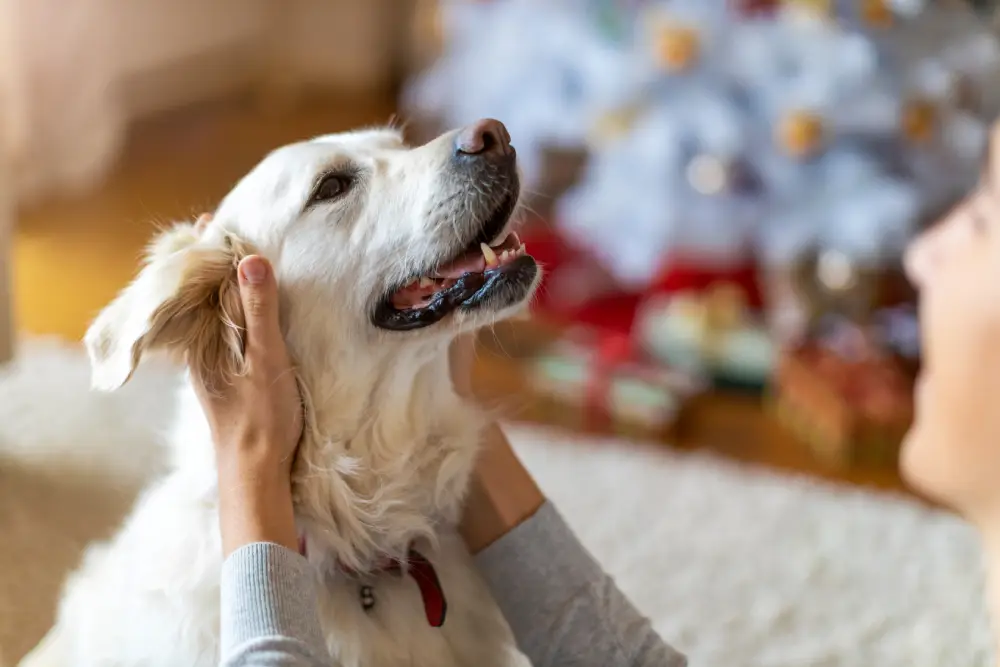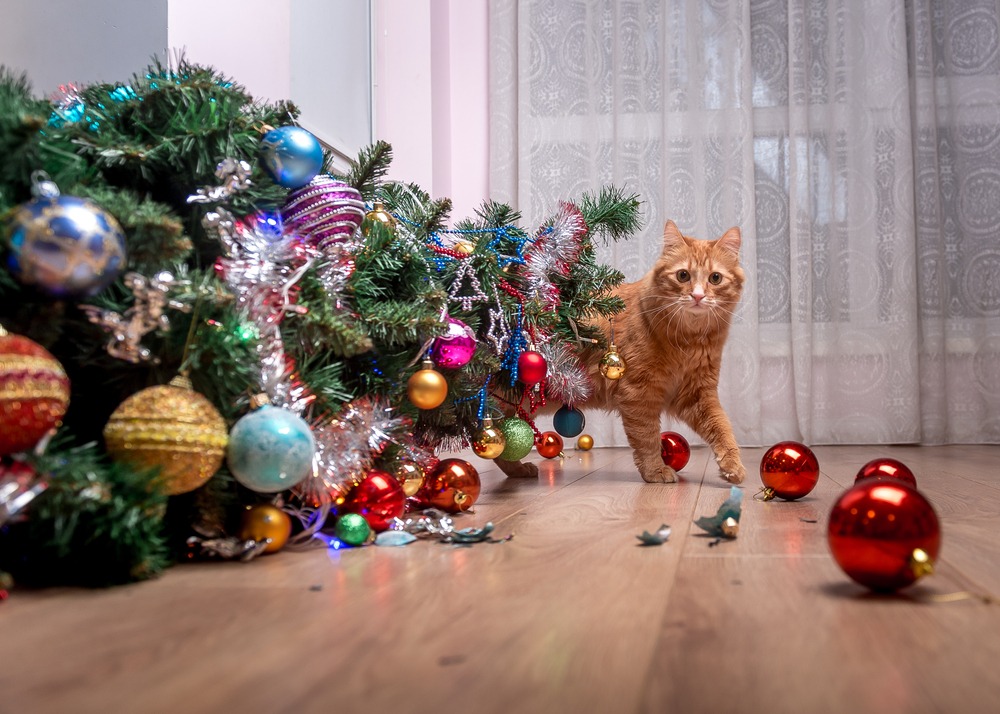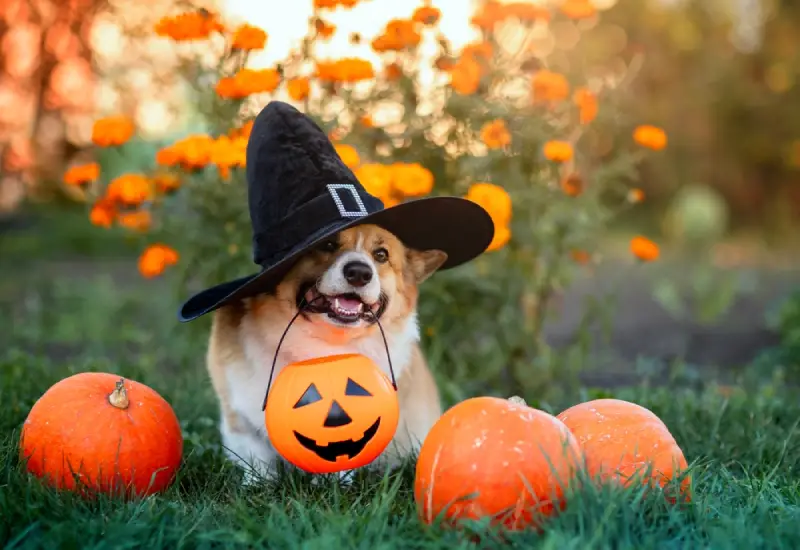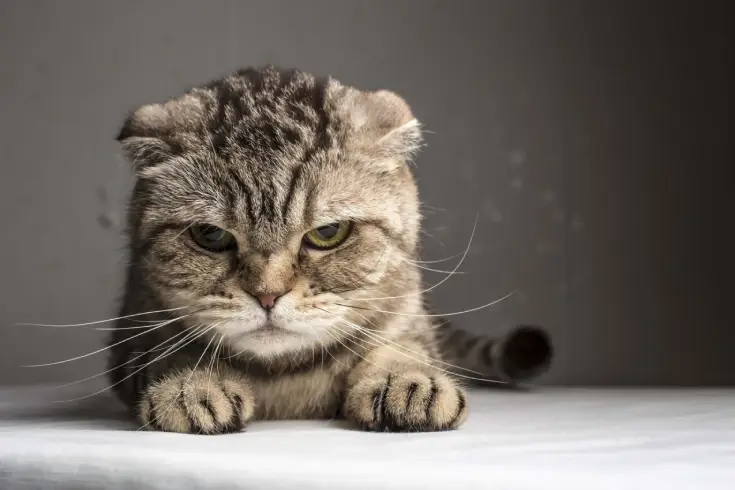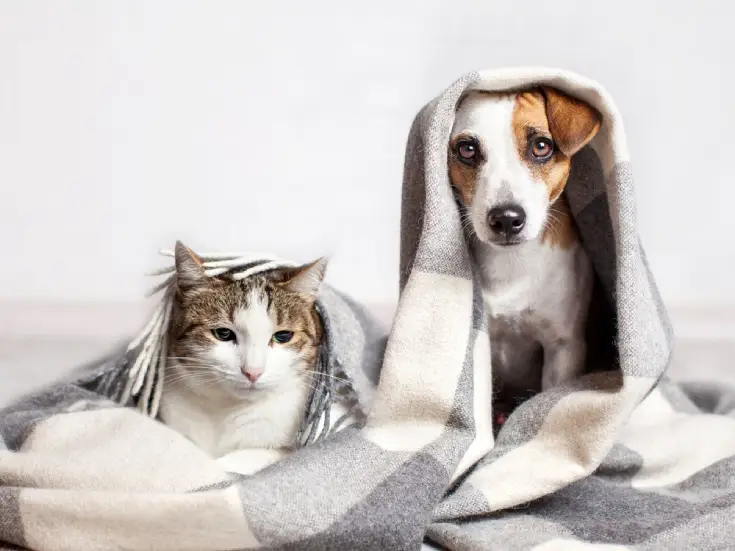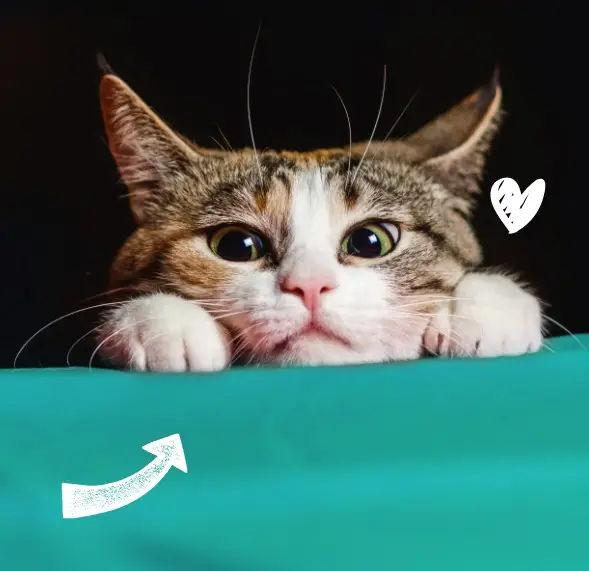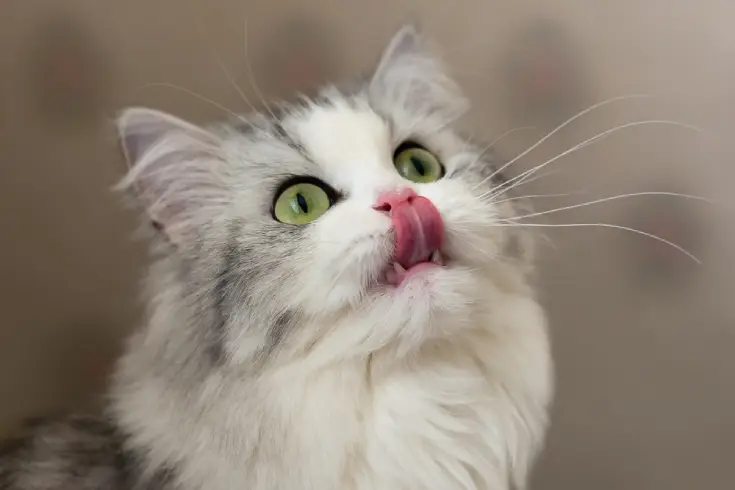
We all know that felines enjoy their food, but have you ever found yourself wondering why your cat is always hungry? As an owner, you know that a cat who refuses to eat requires a trip to the vet. But you may not know that if your cat is overeating there may be more than just weight gain to worry about.
If your cat is constantly hungry all the time, it could be a sign of a serious health issue like hyperthyroidism, diabetes or cancer. This handy guide looks at possible causes of overeating, symptoms to look out for and what to do if you’re concerned about your cat’s feeding habits.
Your cat’s diet
The key to identifying changes in your cat’s behaviour around food is to establish and stick to a feeding routine. While there’s no straightforward answer when it comes to the right amount to feed a feline, there are some guidelines to help avoid overfeeding. Generally, kittens need roughly twice the nutrients of adult cats to aid their growth and energy, but their stomachs can’t handle large quantities of food. Ideally, kittens under six weeks should remain with their mother, before gradually being introduced to nutritious and high-quality wet food.
At six weeks, a kitten should be eating four or more small portions at various intervals throughout the day. Once a kitten reaches 12 weeks, you can increase the size of each meal and space them out to three meals a day. After six months this should be reduced to twice daily. Unless a kitten is showing excessive weight gain that implies they’re being overfed, they’re considered an adult once they hit one year of age. Throughout their adulthood, cats can be fed twice daily, along with dry food left out to graze on.
It’s important to ensure that the food you’re feeding your cat has the best nutritional value for their breed, lifestyle and health. While it’s up to you when it comes to canned vs dry food, cats need protein, taurine, vitamins, minerals, enzymes, fatty acids and water to stay happy and healthy. If you’ve found that your cat is always hungry and you’re worried, check with your vet that your cat’s food is meeting their nutritional needs.
If your cat’s constant hunger is due to boredom or habit rather than actual nutritional needs, offering low-calorie treats can be a satisfying alternative. These treats allow you to reward your feline without overfeeding. Explore our selection of tasty, guilt-free options in our Low Calorie Cat Treats category.
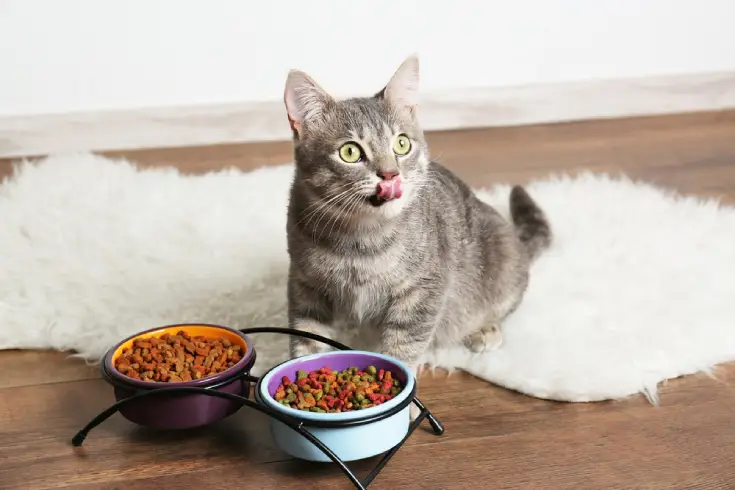
Your cat’s behaviour
Your cat will display habitual behaviour around mealtimes, including wandering over to where their food is kept, meowing, and rubbing their tail against your legs. However, it’s important to remember that cats aren’t as motivated by food as dogs and shouldn’t be excessively begging, acting hungry all the time or whining for food between meals. While keeping an eye on your cat’s behaviour and monitoring how much they eat, you should look out for other signs that may point to an underlying problem, including: increased thirst, frequent urination, abnormal weight gain or loss, vomiting, and diarrhea.
Whether it’s due to psychological or physical health issues, it’s essential that you discover the cause behind your cat’s increased appetite as soon as you notice that they’re overeating. Aside from any underlying issues, an increased appetite can have dangerous effects on your cat’s health and wellbeing in the long term.
Causes of an increased appetite
Cats that are always hungry yet never gain weight may be suffering with an underlying disease or ailment. Some of the common causes of an increased appetite are:
- Worms: Worms, or intestinal parasites, feed off what your cat eats and steal most of the nutrition from their food. This means that cats eat and still feel hungry, as they’re getting very little of their diet’s nutritional value. Despite this, a worm-infested cat may look like he’s gaining weight as the parasites cause their body to swell. The most common ways for a cat to get worms are by eating infected fleas and hunting diseased prey.
- Hyperthyroidism: Hyperthyroidism causes a vast increase in appetite because your cat’s metabolism burns too many calories. An overactive thyroid is caused by an increase in production of hormones and results in cats using their energy too rapidly. Although it’s usually seen in middle-aged and older cats, the symptoms are subtle. Fortunately, once hyperthyroidism is diagnosed it is easy to treat.
- Diabetes: With diabetes, your cat’s pancreas isn’t producing insulin properly and means they can’t convert the sugars from digesting food into energy. To compensate, cats will overeat to try and increase their low energy level. If left untreated, diabetes can lead to dangerous weight loss and further illness. The main symptoms which point to diabetes are increased thirst and frequent urination.
- Psychology: Just like humans, some cats will eat to cope with psychological issues like boredom, loneliness, grief or depression. If you suspect your cat’s hunger is due to a psychological rather than physical complaint, try gentle play, petting and reassurance before mealtimes and see if their diet improves.
- Cancer: If all other causes have been ruled out and your cat is still always hungry, your vet will recommended testing for cancer. There are several reasons for an increased appetite and weight loss in cats with cancer, including changes in metabolism, the body’s natural response to the condition or tumours in the intestinal tract.
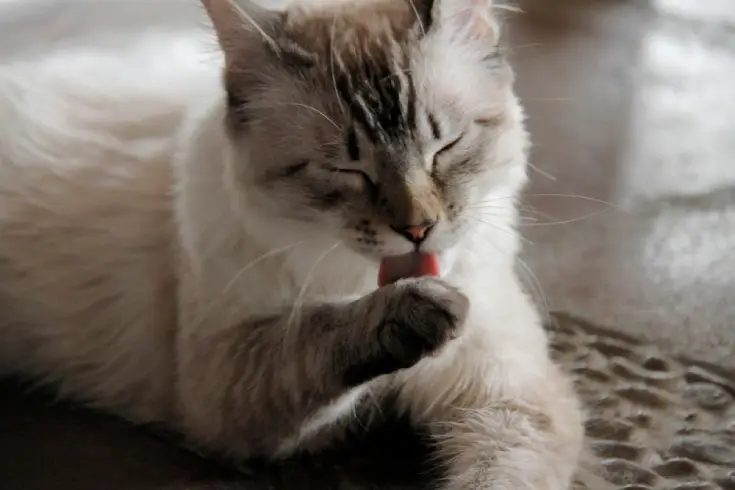
As long as your cat’s weight is stable and they aren’t displaying any worrying symptoms, they’re likely just a normal food-motivated feline that loves to eat. However, if you are concerned about your cat’s eating habits, keep a track of their weight and consult your vet.
The Webbox Difference
Here at Webbox, we try to see the world from a cat’s point of view so we can understand what they want, not just what they need. We put all our love, creativity and fun into everything we make, producing nutritional food and tasty treats designed to keep you and your feline friend happy and healthy. For fantastic food, tantalising treats and magical mousse, shop our cat food range today.

Shop for Dogs

Personalise your search:
Shop for Cats

Personalise your search:
Our Most Popular Products
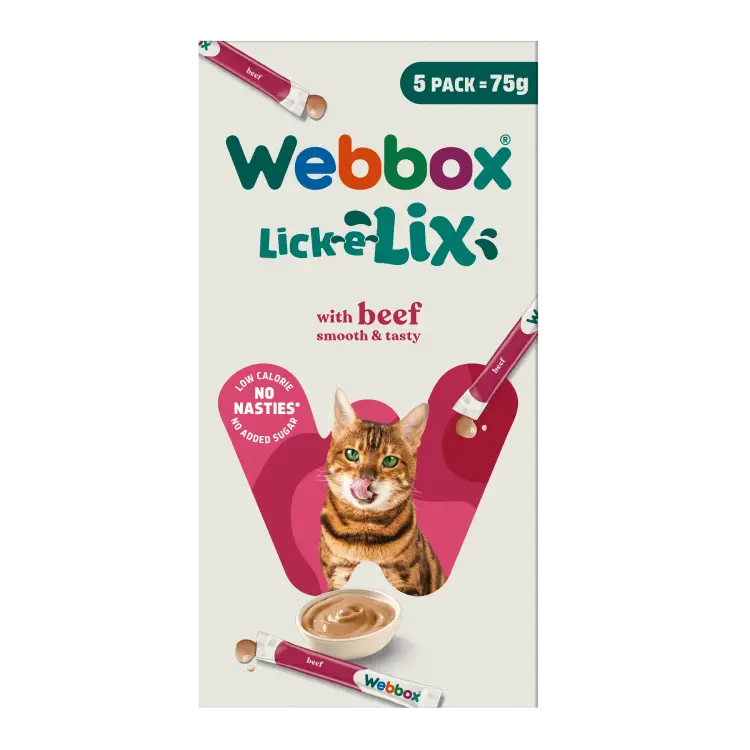

Webbox Lick-e-Lix with Beef Cat Treats 75g
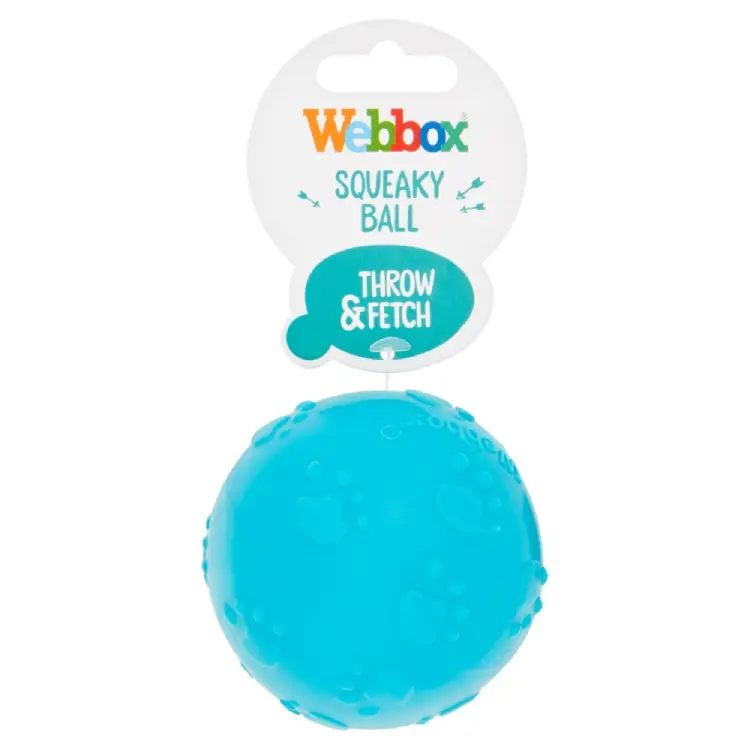

Webbox Squeaky Ball Dog Toy
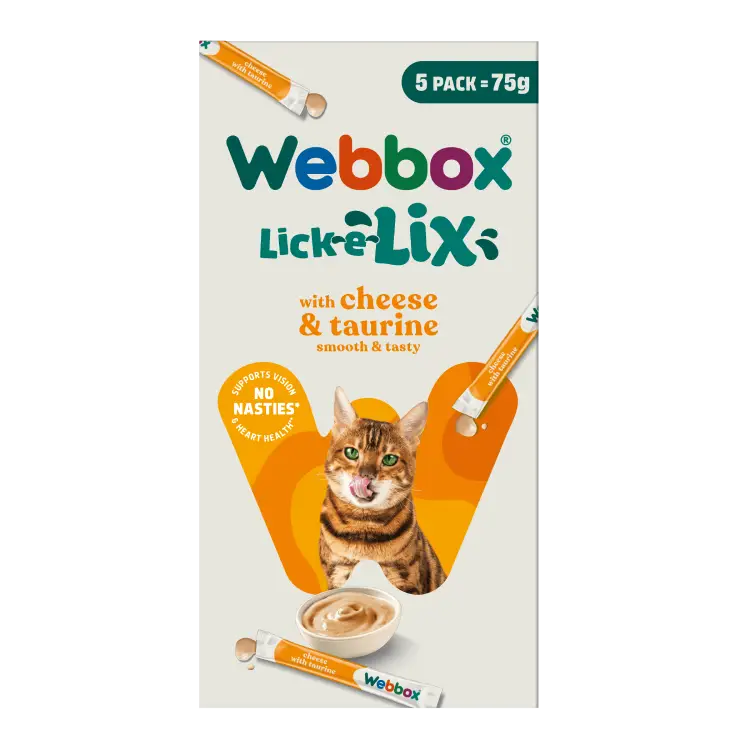


Webbox Lick-e-Lix Cheese & Taurine Cat Treats 75g
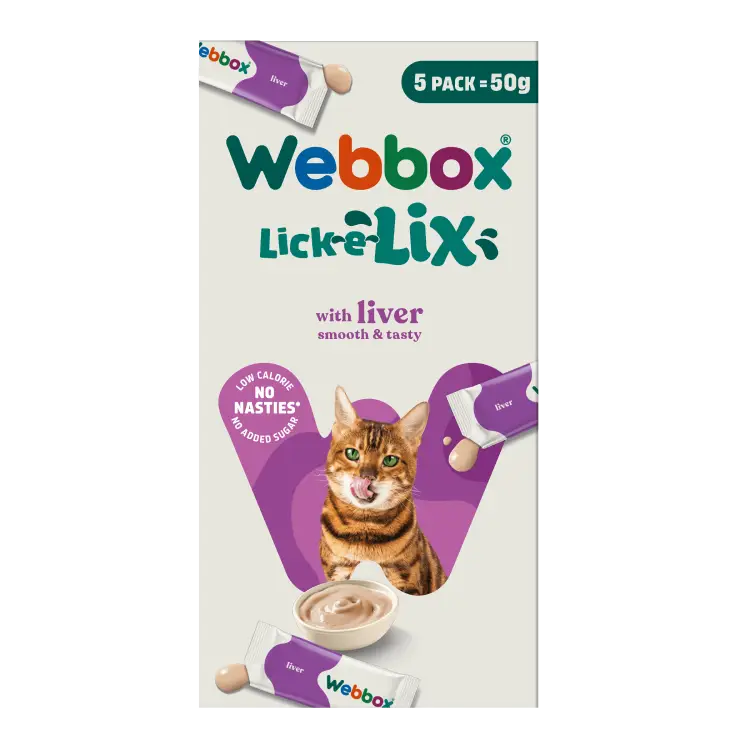

Webbox Lick-e-Lix Liver Cat Treats 50g
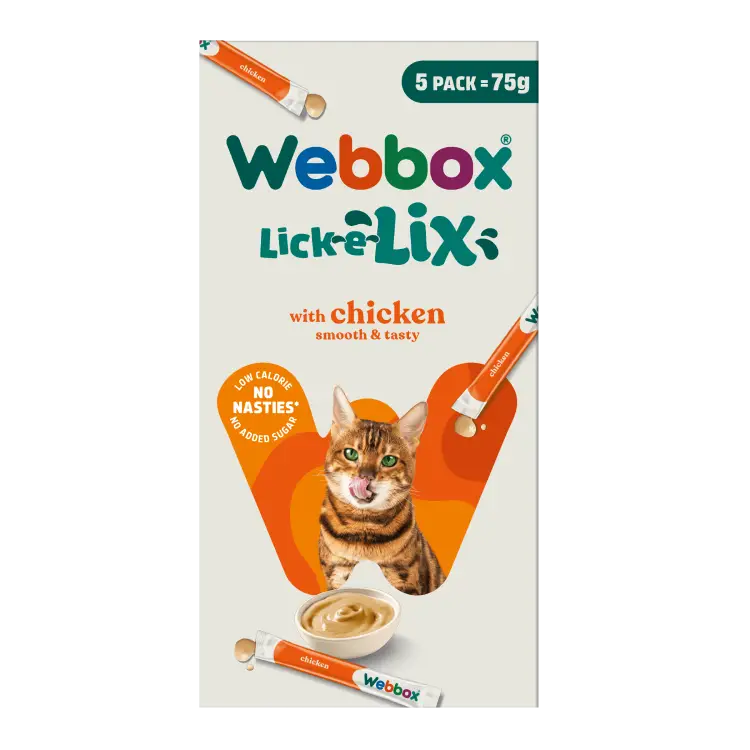

Webbox Lick-e-Lix Chicken Cat Treats 75g


